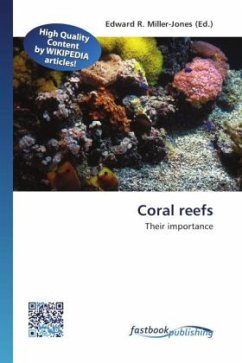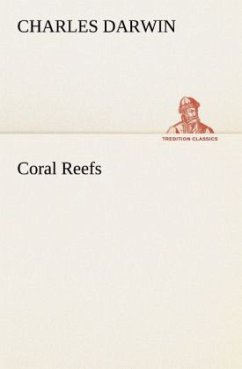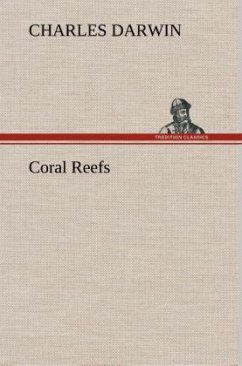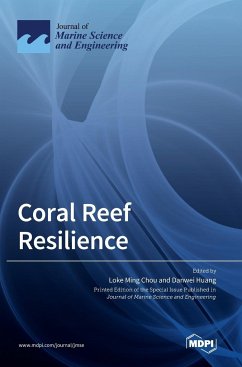
Coral
Versandkostenfrei!
Versandfertig in 6-10 Tagen
32,99 €
inkl. MwSt.

PAYBACK Punkte
16 °P sammeln!
Corals are marine organisms from the class Anthozoa and exist as small sea anemone-like polyps, typically in colonies of many identical individuals. The group includes the important reef builders that are found in tropical oceans, which secrete calcium carbonate to form a hard skeleton. A coral "head", commonly perceived to be a single organism, is formed from many individual but genetically identical polyps, each polyp being only a few millimeters in diameter. Over thousands of generations, the polyps lay down a skeleton that is characteristic of their species. An individual head of coral gro...
Corals are marine organisms from the class Anthozoa and exist as small sea anemone-like polyps, typically in colonies of many identical individuals. The group includes the important reef builders that are found in tropical oceans, which secrete calcium carbonate to form a hard skeleton. A coral "head", commonly perceived to be a single organism, is formed from many individual but genetically identical polyps, each polyp being only a few millimeters in diameter. Over thousands of generations, the polyps lay down a skeleton that is characteristic of their species. An individual head of coral grows by asexual reproduction of the individual polyps. Corals also breed sexually by spawning, with corals of the same species releasing gametes simultaneously over a period of one to several nights around a full moon. Although corals can catch small fish and animals such as plankton using stinging cells on their tentacles, these animals obtain most of their nutrients from photosynthetic unicellular algae called zooxanthellae. Consequently, most corals depend on sunlight and grow in clear and shallow water, typically at depths shallower than 60 metres (200 ft).












